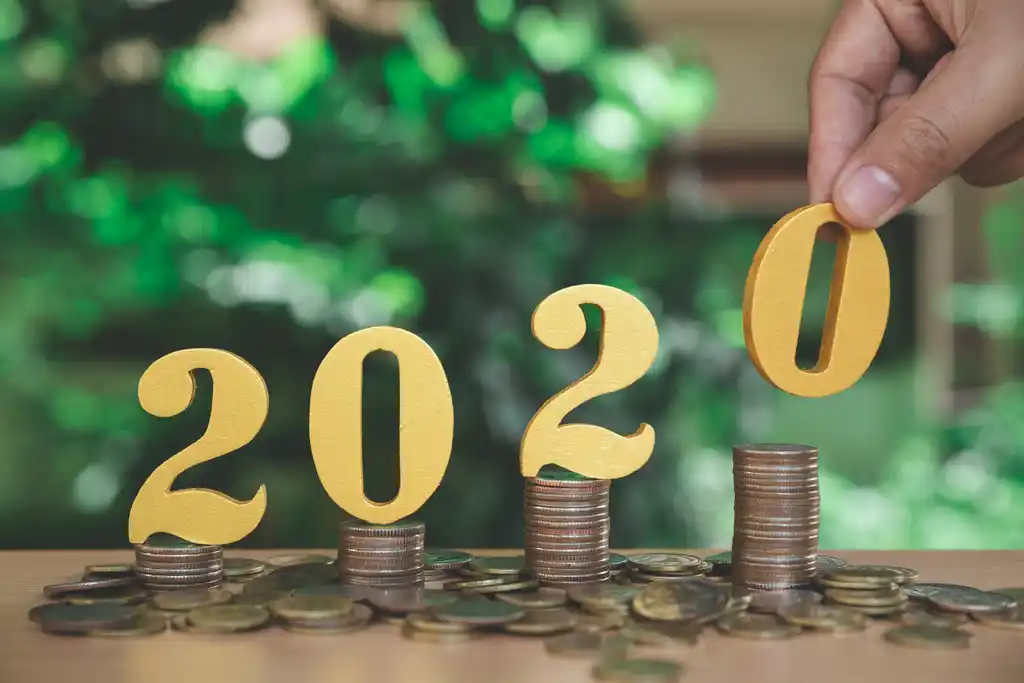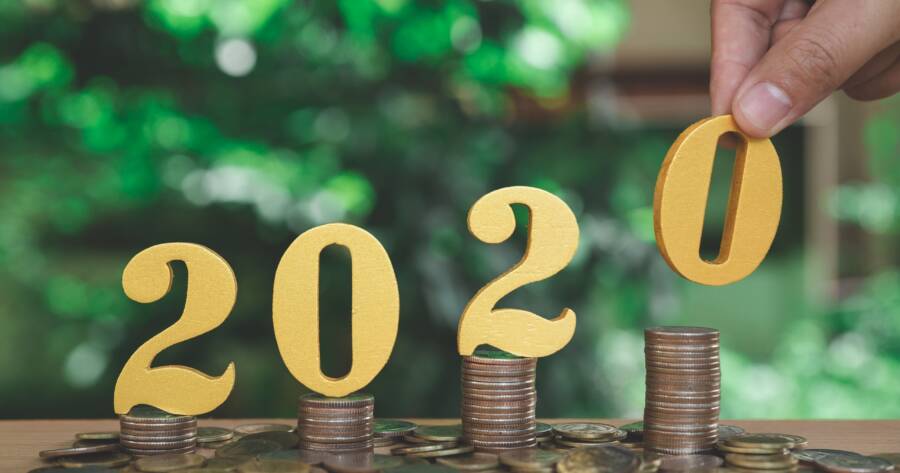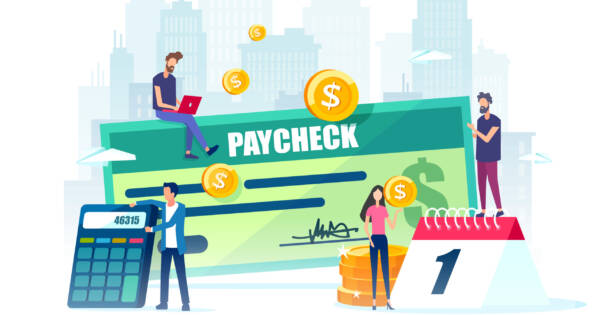The year 2020 is almost here. With it comes not only a New Year, but also a whole new decade. What better time to get your financial affairs in order? We know that most of you have probably made financial resolutions in the past. You’ve also most likely broke them.
According to a study conducted by the University of Scranton, only 8% of people achieve their New Year’s resolutions. Most people (80%) actually give up on their resolutions by the end of January. That’s sad when you consider that getting out of debt is the second most popular resolution, right behind vowing to get into better physical shape. Here are ten financial resolutions to consider for 2020 and tips on how to stick to them this year.
Make a Budget (and Stick To It)
One of the easiest resolutions to make is also one of the most obvious – make a budget. Having a budget is important, as it enables you to see what money you have coming in and expenses you need to cover. Tracking your money closely is an important first step to successfully managing your financial affairs.
Budgeting may seem like a pain in the butt at first, but it can quickly become a habit. Especially if you stick with it for a few months. There are also a number of online budgeting tools and apps that you can use that make budgeting easy and accurate. These include You Need a Budget, PocketGuard, and Albert. Whether you draw up a budget yourself or use one of these helpful resources, making a budget and sticking to it will pay big dividends for you.
Check Your Credit Score
Checking your credit score is important. It will provides you with information about your debt and give you an accurate picture of how that debt is impacting you financially. Unpaid debts and delinquent accounts can stay on a credit report for up to seven years. That will effect your ability to secure loans, and ramp up the interest rate you pay on any you do qualify for.
Credit scores typically range from 300 to 850. The higher the score, the more financially sound you’ve been with your credit. If you have a low score, however, things are going to be tough. The good news is that the three major credit agencies in the U.S. – Equifax, Experian and TransUnion – will each give you a copy of your credit report once a year for free. Take advantage of this fact and order your credit report from all three agencies.
Review the report and learn the big picture regarding your debt and how it is impacting you. Also, be sure to let the agencies know if any information in your report is inaccurate. This is easy and free, so there’s really no excuse not to order your credit reports.
Sell Things You’re Not Using
De-cluttering your home can have many advantages. One of the biggest advantages is financial. Whether you hold a garage sale, bring items to a consignment store, or put them up for sale on eBay, offloading the things in your home that aren’t being used is a great way to generate extra cash. Things to consider selling can range from clothing and electronics, to children’s toys and even small appliances such as coffee makers and toasters.
You’ll be amazed at how quickly a lot of your “useless” items will sell . The money can add up fast. Take the extra money you generate from the sale and put it towards debt or savings. Using this extra cash wisely will have a lot more impact on your future well-being than that old exercise bike collecting dust in your basement.
Lower Your Monthly Bills
Some bills you’re stuck with. You’re not likely to eliminate a mortgage or rent payment, utilities, and basic grocery expenses. Other monthly bills are discretionary, however, and can be cut back or cancelled altogether. These include your subscriptions to cable TV, Netflix, a gym, a golf course, or Spotify. While many of these bills may seem to cost little individually (Disney+ is only $8 a month, after all), they add up quickly. Together, can cost you a lot of money each month. If you barely use your Hulu or Apple Music accounts, considering cancelling them. If your enthusiasm for hitting the gym has waned, cancel that too. Or at least look for a cheaper alternative.
Taking a hard look at your monthly bills and finding ones that you can reduce (or eliminate) will leave you with extra money. A useful tip is not to cancel all your subscriptions and memberships at once. If you currently have subscriptions to three streaming services, for example, don’t cancel all three. You should keep your favorite one. This will help you to make some targeted sacrifices without completely denying yourself life’s pleasures. Just remember that if you’re not using a membership or subscription, it doesn’t make sense to pay for it.
Get Down to One Credit Card
The average American owns three credit cards, according to data from Gallup Polls. That’s two credit cards too many. Most financial experts agree that you should only own one credit card, and it should only be used for emergencies. Do yourself a huge favor and get rid of your multiple credit cards. Vow to get down to one credit card only by the end of 2020. This may seem potentially difficult, but it doesn’t need to be.
Pay off the credit card with the highest interest first and then cancel the card. Move on to the credit card with the next highest interest rate. Repeat until you only have one credit card left. Another approach is to get a credit card with a low interest rate (ideally 0% for a set period) and then consolidate all your credit card balances onto this one card, canceling the rest. The problem with multiple credit cards is that they spread people too thin. It can be difficult to keep up with the monthly payments when the interest piles on at 18% to 30%. Having all your credit card debt consolidated will make it easier for you to keep track of it and eventually pay it off.
Put Aside Some Money For Emergencies
Many financial gurus say that people should have three months of their salary saved for an emergency. That’s typically a sudden job loss or major medical emergency. We feel this is a little unrealistic, given the cost of living these days. It also doesn’t consider the fact that people who are laid off or fired through no fault of their own can apply for unemployment benefits. It’s more realistic to set aside one or two thousand dollars for a more frequently occurring emergency, like a surprise car repair, home repair, or to cover the cost of an unexpected child-related expense.
Most people are far more likely to go into debt trying to pay for a new muffler than they are trying to cover their monthly expenses after losing their job. Having a small amount set aside for these inevitable emergencies will help to get you out of a financial jam. It will also help keep your debt load down. Win-win. If you can afford more of an emergency fund than a couple grand, more power to you! Just don’t go into debt in the process.
Make One Extra Mortgage Payment
Most banks allow you to make multiple extra payments on your mortgage every year. Despite that, not many of us have enough extra money to do it. That said, it is possible for lots of you to scrounge enough money together to make one extra mortgage payment. And that extra payment can have a big impact.
Any bonuses received at work, income tax returns, and extra money found from cutting your other monthly expenses can all be put towards an extra mortgage payment. Making an extra mortgage payment is beneficial because the amount goes right on the principle balance of the mortgage, not to interest charged by the lender.
Over time, lowering the principle on your mortgage can save you hundreds (if not thousands) of dollars in interest payments. Check out this mortgage payoff calculator found on the personal finance website run by Dave Ramsey. Enter your mortgage information and see how extra payments can benefit you.
Institute a Shopping Ban
This one may seem a little obvious, but how often you shop has a direct impact on your personal bottom line. So try cutting back. We’re not saying you must go cold turkey forever or anything. But why not institute a two-week ban on shopping for non-essential, discretionary items? You could even pick a month out of the year and ban yourself from going to the shopping mall.
Scaling back the money you spend on items that are not essential, the so-called “nice to have” things, will leave more money in your pocket. It can also help lessen the debt you take on. Take that money you would have spent at the mall, Chipotle, or the movie theater and put it towards something more important. Us it to pay off a credit card, make an extra mortgage payment, or stash it away in savings.
Use Cash Whenever Possible
There’s a lot of talk about how we’re moving towards a “cashless society.” But cash is still king when it comes to personal finance. While many people use debit and credit cards to make purchases and payments these days, there is no better way to keep track of your money and stay out of debt than to use cash.
Having cash on hand literally tells you how much money you have to spend on a particular item. You hold the money in your hands, whether it’s for buying groceries, gas, or presents during the holidays. With cash, you avoid debt and the temptation to overspend. You also keep track of your spending much better than when using a card. While you can’t always use cash (i.e., online shopping), carrying cash and only spending the money you have on you is a fool-proof way to better control your finances.
Invest in a Retirement Savings Account
It doesn’t have to be a lot of money, but any amount invested into a 401K retirement account or Roth IRA is advisable. It will only benefit you over the long-term. The biggest financial threat to Americans is that they are not saving enough money for retirement. A June 2018 report from the Transamerica Center for Retirement Studies looked at a nationally representative sample of 6,372 American workers, age 18 and up, and broke down their retirement savings by generation.
It found that baby boomer households had median retirement savings of $164,000, while Generation X had $72,000 and millennials only had $37,000. While that’s some savings, it is not nearly enough to fund a comfortable and long retirement. When you consider that a third of American retirees have to re-enter the workforce for financial reasons, it’s easy to see that the more you save for retirement, the better.
Time is of the essence when it comes to retirement savings. Starting to save early is more important than the amount being saved. So do yourself a favor and invest in your future in 2020. Put money into a retirement savings account of some kind.
 Shutterstock
Shutterstock







